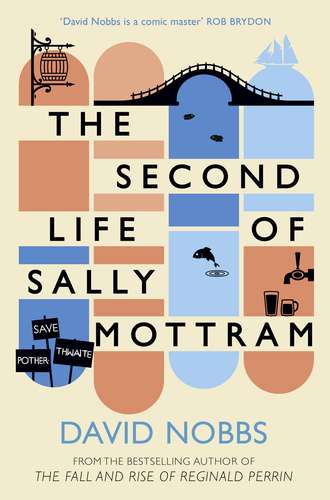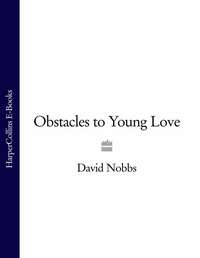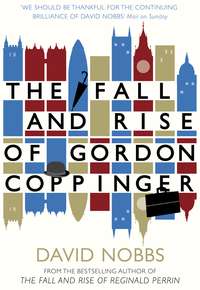
Полная версия
The Second Life of Sally Mottram
He looked so pale, his cheeks were so hollow, his eyes were so intense – the bags under them looked as if they had been waiting for years for him to slip into them. Sally was overwhelmed with love and pity. She reached out and pressed his hand. She could find no words.
He took a letter out of his pocket, held it with a shaking hand, tried to steady it by using both hands, failed.
‘You’ve said so much about there not being a suicide note,’ he said. ‘It’s worried you so much. You’ve told me so many times how you yearn for closure. I haven’t slept properly since I got it. I’ve even taken advice about closure and its value from a psychiatrist. I’ve shown this letter to him, and told him all I know about you, how strong you are, how brave.’
Sally looked at him in amazement. She still didn’t speak.
‘He advised me, very cautiously, covering himself in caveats, to show it to you. This is Dad’s suicide note, Mum. He sent it to me.’
‘Oh God.’
It was barely a whisper. Sally could scarcely breathe.
‘Read it,’ she whispered. ‘Read it, Sam, please. I don’t think I could bear to see his handwriting just now.’
‘Right. I’ll read it. I wondered if you might prefer that.’
He cleared his throat.
‘“Dear Sam,
‘“This is a letter that I never expected to have to write, and it is one that I wish with all my heart that I did not have to write now. In one hour’s time I will walk out of my office for the last time, and drive home, stopping only to post this letter. When I get home I will hang myself. In posting this letter I am, in a way, committing myself to the act. I am very frightened, but I am also extremely vain – see how carefully I compose this letter, taking care to put ‘extremely’ in place of a second lazy ‘very’!” He puts an exclamation mark there.’
Sally, the blood draining from her face, made an impatient gesture, which said, Never mind the punctuation. Get on with it.
‘“I’m very scared, but I’m much too conceited to allow even my son to see how weak I am.
‘“The obvious reason for my killing myself is very simple. I’m losing money hand over fist and will soon have to declare myself bankrupt if I live. I cannot bear the disgrace. I cannot bear the thought of meeting our wealthy friends at the Rotary lunch and the golf club after such a disgrace. I dread the thought of even facing you, and Alice, after such a disgrace.”’
Sally listened with a stony face. It would have been impossible for even the cleverest psychiatrist in the world, who undoubtedly was not Dr Mallet, to see what she was thinking. Was she turned to stone by the horror, by sympathy, by disgust, by simple pique at her children being mentioned in the letter before her?
‘“But there is another reason, sadly also not very original. In death, fittingly, I reveal the reason that my life has failed. I am indescribably ordinary, a lawyer of no great talent or imagination, a husband with no real tenderness or warmth or understanding, a father bringing up his children as if from the pages of a manual.
‘“I look at myself in a mirror and I see a little man, a dull man. I hate myself. I don’t fear not existing. I look forward to it. I will be glad to be gone.”’
Sam paused. He looked up at his mother. His hands were shaking as much as ever, the paper trembling as if being held in half a gale.
A single tear, a harbinger of floods to come, ran slowly down his mother’s face.
‘It gets worse, Mum. Can you take it?’
She nodded fiercely, almost angrily.
‘“The one unusual thing that I am doing in this last act of my unmemorable life is sending this, my suicide note, to you and not to your mother. I feel a tiny, ridiculous, entirely callous twinge of pride at doing this. It will mean an inquest. My little life can entertain Potherthwaite just for a moment at the last. Potherthwaite, dear God, how did I end up there?
‘“But no. The main reason for my sending you this letter is that I cannot send it to your mother. There are things I find I cannot die without saying. I want to say them. I want to tell you, which is very unfair on you, but you see my hatred of myself has made me a very unpleasant man. I …” I don’t think I can go on, Mum. I think I’ve made a dreadful mistake.’
‘Go on!’ She tried to keep the sudden irritation out of her voice. ‘You can’t stop now.’
‘No. No.’
He gasped. The simple, naked words came out very fast, as if he feared his voice would break.
‘“I haven’t said anything truly meaningful, or meaningfully true, to your mother for about ten years.”’
He couldn’t look at her now.
‘“It’s just … it’s become … as if neither of us are real when we’re together. It’s as if we were holograms. There is no connection. It has turned into a dead, dull drama, a dismal fiction. I tried to write this to her, I just couldn’t think of any words. I couldn’t move my hands. The last few times …”
‘I can’t read this bit, Mum.’
‘You must. You can’t stop now.’
‘Oh God.’
He went bright red. He was shaking. He came out with the words very fast.
‘“The last few times we made love, I pretended that she was somebody else. Who, you may well ask. Sam, I can’t tell even you that. That must remain my sad little secret shame.
‘“There is no need to reveal the existence of the letter at the inquest. I haven’t a shred of respect left for the law.”’ Sam was beginning to cry. ‘“And please don’t tell your mother. She hasn’t the character to survive this letter. Lies are almost always so much better than the truth.
‘“This letter comes to you, Sam, with, if not love, the nearest perhaps that I can come to love.”’
He was rushing now. The tears were coming. She could hear them approaching.
‘“Do better in life than I have, Sam.
‘“Your wretched, late father.”’
As he read the last words Sam dissolved into tears.
‘Have I done wrong?’ he wailed. ‘Mum, have I done wrong?’
She was crying too. She shook her head.
‘You see, Mum, I don’t think lies are better than the truth.’
Sally tried to smile.
‘You see, Mum, I think you do have the character. I think you’re marvellous.’
They clutched each other, then, mother and son, both with tears streaming down their faces.
‘Beth’ll kill me,’ he said.
TWELVE
In which Totnes is mentioned many times
Sally woke up to find herself in a dream world. She was on a train, which was running right along the coast. The sea was sparkling under a southern sun. A few bathers were braving the chill waters.
She had no idea why she was on a train. She had no knowledge of where she was. For a moment she thought she was sixteen and travelling along the Côte d’Azur to meet up with her family.
Then Barry’s letter, read by Sam only last night, fluttered from the luggage rack, turned into stone and crashed on to her forehead.
The sun went in, abruptly, terrifyingly. All colour drained from the sea. For a moment it seemed like a supernatural event. Sally shivered, even though the temperature on the train hadn’t changed. Then the sun came out again, with startling suddenness, as if switched back on by a playful God, and she realized that a cloud had passed across it, a cloud so small and so fluffy that it seemed utterly incapable of hiding a whole burning planet even for a few seconds.
Now it all came back to her, the dreadful letter, the sleepless night, made all the worse because she had been separated only by an absurdly thin wall from her son’s sleepless night, and worse still because beside her son had lain Beth, and beside Sally had lain nobody, yet that could no longer be regarded as sad, for it was far better to lie beside nobody than to lie beside someone who didn’t love you.
And still the sun shone and the bathers swam. How could these things exist in the same world?
Then a more trivial, yet also more urgent, worry assailed her. She was travelling to Totnes, to stay with her sister Judith. But where was she? Had she passed Totnes? She had certainly been in a deep sleep. She had been peering determinedly at the countryside, trying to take an interest in every house, every tree, every cow, rather than brood over her misfortune, and she had fallen asleep, fast asleep on a fast train. She might have been undisturbed by many stops at many stations. Had one of them been Totnes?
She had endured an unhappy marriage and she had thought that she was happy. How stupid was that? She looked out of the window hurriedly, searching for happiness. The train was still passing the coastline, but it was turning inland, alongside an estuary. There was a pretty little town on the other side of the estuary. What town? What river? Before Totnes or beyond Totnes? Ask!! Don’t be stupid, Sally. You may have been stupid for twenty-four years of marriage – it occurred to her for the first time that she would never have her twenty-fifth wedding anniversary, she had missed it by … quick calculation, absurd to be bothering to calculate at this moment, but there we are, you are absurd, Sally … twenty-three days … they were slowing down, they were approaching a station, ask!
She couldn’t. At Totnes she would see Judith, and be able to communicate with a human being again – unless Judith was furious because she had sailed past her on the train in a mixed metaphor and fast asleep. Judith could get quietly furious if things didn’t suit her, oh God, she had wondered if she could stand two weeks with her – now one week felt like a mistake. Perhaps she had passed Totnes and she’d just go on and on and jump off a cliff at Land’s End. Don’t even think like that, ask ask ask, you fool, she had to stand a week with Judith, Judith was her only hope.
The train had picked up speed again, but now it really was slowing down, and she couldn’t ask, not these three people, two men and a woman, seated round the same table as her. It occurred to her that the human race looked absurd. The heads were so tiny, the arms and legs so long, the stomachs so large, all that body, all those bones and muscles with no thoughts whatsoever, no personality whatsoever, all the personality and character stored in a little mechanism in the middle of the tiny heads – no wonder the human race was making such a mess of things. No, there would be no point in seeking help from people, from any people, let alone these people, who were probably foreigners anyway. ‘I not know this Totnes.’
They were sliding in to a platform. She heard a voice saying ‘Newtnarbt. Newtnarbt’. It meant nothing to her, but it didn’t sound like Totnes. She calmed down, searched the platform for the station’s name, and there it was, clear on a large board. Newton Abbot.
It wasn’t Totnes. She broke into a slight sweat of relief. Then she realized that nothing had been solved for her. She didn’t know whether Newton Abbot was before Totnes or after Totnes. She was shamefully ignorant of her nation’s geography. She would put that right if she ever recovered her sanity.
There was an announcement. Shut up, everybody. This is the quiet coach. I want to listen. ‘The brain standing at platform …’ Shut up with your trivia, you wankers. Oh, Sally, language. ‘… four twenty-seven for Penzance …’ Silence, pleeeeese! ‘… Totnes, Plymouth …’ Oh, the relief. The tension drained from her, taking all her energy with it. She sank into exhaustion.
The relief didn’t last long either
She realized why she had found it impossible to ask the other passengers at her table. She was terrified of them. She was terrified of them because she hadn’t the faintest idea what they were thinking. That was the terrible legacy Barry had left her, not debt, not poverty, not loneliness – they were nothing compared to his legacy. He had left her mistrust. He had left her not daring to believe that anybody at any time was speaking the truth about anything.
The train was slowing down again. Was it approaching Totnes? She hadn’t been able to hear the announcement on the tannoy at Newton Abbot well enough to be sure that she hadn’t failed to hear the name of another stop between Newton Abbot and Totnes.
Luckily, at that moment, the woman at her table asked, ‘Is this Totnes?’
‘Yes, Totnes,’ said one of the men.
‘They usually announce it,’ said the woman. ‘They usually announce everything several times all the time. But I’ve had this one before, and he’s lazy.’
‘I’ll do it for him,’ said the other man wryly, dryly. ‘This is Totnes. Please remember to take all your personal belongings with you. And mind the gap between the train and the platform edge on leaving the train.’
‘Remember to put one leg in front of the other when walking along the platform,’ said the other man.
The three of them laughed. Sally wondered if she would ever be able to laugh again.
She stood up, and busied herself remembering to take all her personal belongings with her.
The train drew to a slightly abrupt halt. Black mark, driver.
‘Totnes,’ called out a rather pleasant, reassuring, West Country voice. ‘Totnes. This is Totnes.’
A kind man – was he really kind or was this all fake? – helped Sally with her cases. She minded the gap between the train and the platform edge, and stepped carefully out into the rest of her life, whatever that might turn out to be.
She walked along the platform, remembering to put one leg in front of the other.
Judith was standing there, elegant as ever. It was surprisingly cool on the platform; the swimmers she had seen from the train really had been pretty brave. Judith was wearing a light coat in spectacular pink. It was trimmed with fur. Sally wondered if the fur was real or fake.
Judith didn’t move towards Sally. She let Sally move towards her. That was characteristic. But she was smiling. Sally wondered if her smile was genuine or fake. If she’d been a betting woman – oh God, Barry, William Hill – she’d have said that the fur was real, but that she wasn’t so sure about the smile.
‘Welcome to Totnes,’ said her sister.
They hugged. How they hugged.
Was Judith’s hug real or fake?
THIRTEEN
Uncharacteristic behaviour
Sally stood on the edge of a cliff. The sun was shining, but the breeze was cold. White horses took the edge off the loveliness of the sea, stifled its cry of ‘Come in. Come in. The water’s lovely.’ Behind her, the fields sloped sharply to the very edge of the land. Awfully tempting for a farmer with money problems to just drive the tractor over the edge. Awfully tempting for Sally to just jump. Wouldn’t reach the white horses. Would be splattered to death on the rocks below.
Did she want to be splattered to death? She didn’t know. God, that was terrifying. It would be pretty terrifying if she had known that she did. But simpler. If she’d had the courage. To want to jump, and not be brave enough, that would be bad, but to be unable to decide, to make the wrong decision, and then, halfway down, have as your last thought, ‘No! Wrong! This is a mistake’ – that had to be the most frightening thing of all.
You might think, ‘Well, if she has such doubts, she won’t jump, in the end,’ but the situation wasn’t as simple as that. There was the pull of the sea, never to be underestimated. There was the obvious fact that the state of her mind was unbalanced. There was the knowledge that only by jumping could she absolutely settle the matter. If she didn’t jump it would still be inconclusive. It would leave the possibility that later she would change her mind, and jump.
‘Come come,’ cried the sea. ‘Come and join those who have ended their days with me. You will find many friends in the deep.’
She moved away, hurriedly.
She didn’t go far. She knew that she hadn’t made up her mind, she might be back. She found a small area of grass that seemed to be free of rabbit droppings, and she sat down. She shivered. It was cold. She hadn’t enough clothes.
Four days had passed since she had hugged her sister Judith on the station platform. They’d spent much of it just wandering round Totnes. It was a delightful little town. They’d had coffees and teas and lunches and everywhere the food had been fresh and light and healthy. Judith had talked about the Transition movement, a movement which had begun there and had spread to all sorts of places, including Lewis, Whitstable and Brixton, the Valley of the River Lot in France, Monteveglio in Italy, even Los Angeles. Every bloody self-satisfied word seemed to Sally to be directed at her. Totnes is wonderful. Potherthwaite sucks. Later she would realize that Judith hadn’t meant to have that effect. It was simple pride, marbled with massive insensitivity.
Judith and Sally hadn’t exactly got on badly over the years, it was just that they had never been close. It was the age gap. Judith was eleven years older than Sally. Sally had been a mistake. In every way, she now thought. Judith, selfish though she was, had never been nasty enough to think that. She had regarded Sally as a tolerable nuisance, to be indulged and played with occasionally, but only when it suited her. Sally had regarded Judith as an extension built on to her mother. Life would have been better without the extension, but there were plenty of parts of the house in which it could be ignored. This was their first real attempt to be true, loving friends. Neither of them wanted the attempt to fail, but both of them were aware how fragile it was.
Judith had assumed that Sally’s other purpose in visiting, apart from the need for sisterly friendship in a family rather short of relatives, was to sound out the possibility of coming to live near her. But not too near. Unfortunately, though, she didn’t know of Sally’s straitened circumstances. She hadn’t been to the inquest – ‘Things may come out that it would be better for our future together if I didn’t know’ had been her ingenious excuse – or to the funeral – ‘Unfortunately it clashes with our half-marathon and I’ve promised to do it, it’s for the air ambulance which I approve of totally and I’m quite heavily sponsored and honestly, darling, there’ll be such a crowd at the funeral, all Potherthwaite will be there, I won’t be missed and I would be missed very badly here, darling, and so, difficult though it was, I’ve made my decision, and, sweetheart, I do hope we won’t fall out over it, and you know you’re welcome here any time, any time, literally any time, except for Henley week of course, but otherwise any time’ had been her almost as ingenious and considerably longer excuse.
So Judith had been very bold and very Judith and had booked with estate agents to visit four houses of different kinds near Totnes – but not too near – carefully chosen, exquisite houses, all good value, but all now hopelessly out of Sally’s reach. And Sally hadn’t mentioned her financial straits and had found that she couldn’t bring herself to tell Judith about them. She despised herself for her weakness, but then she was also despising herself for her lack of love towards Barry, her lack of understanding of him, the complete failure of her life, so her weakness at that moment was hardly surprising.
So she had been forced to agree to visit all four houses. She had already been to three of them. Judith had extremely good taste, and good judgement of other people’s taste. Sally had adored all three, and in coming up with reasons not to make an offer for any of them she had been scraping the barrel – once almost literally, when she had said that she didn’t think she’d be able to reverse out of the garage without hitting the water butt.
Now, seated uncomfortably on a sloping field, in the only patch of grass not covered in rabbit droppings, on a cold evening against which she was inadequately protected, Sally thought about those absurd moments and what a waste of time they had been. And there was still one house to see.
She thought about the emotions that her time in Judith’s bungalow had engendered in her. She had never liked bungalows, but this one was large, airy, tasteful, comfortable, she had privacy, it was perfect. Under the circumstances, after that letter the night before, the perfection had been unbearable. Judith had everything. A villa in Portugal. A flat in London. No man, but then she didn’t want a man. She played golf. She played tennis. She played bridge. She visited lovely restaurants. Sally couldn’t keep up, didn’t play golf, didn’t play tennis, didn’t play bridge, didn’t play life, wasn’t a fun person. Even lovely restaurants palled when you could go every night. In the evenings, after dinner (exquisite) they had been able to watch any film they wanted. To be able to watch any film you wanted, and to want to watch none of them, that was hard to deal with. To have survived six weeks of anguish alone in her home in Potherthwaite, followed by four days of tension in a tiny flat in Barnet, and then to have all the air and all the space you wanted in a superb bungalow in beautiful Totnes, and still to feel claustrophobic, that was difficult to bear.
On the fifth morning, she had desperately needed to go out. Judith was playing something called duplicate, which was a form of bridge apparently, and she’d had to go because her partner could be awkward, she’d had a trauma. Her tortoise had died, and she’d been attached to it. Sally had commented that this must have meant that she had to go around very slowly. The joke had not been a success. But the reason Judith had given had not fooled Sally. Judith had gone because she wanted to, as she had done everything in her life, including retiring with a huge pay-off from a successful distribution company at exactly the time that suited her best.
Sally’d had the house to herself, all that space, and she had felt trapped. She could walk through the conservatory on to the patio, stare at a utopia of conservatories and patios, feel the fresh, unpolluted West Country air on her face, but to her it wasn’t the air, the open air, it was Judith’s air, the enclosed air, the air within the boundaries so carefully drawn up in the documents of sale.
She had walked out, shut the door, not given a thought to keys, had walked through the trim streets, and past the perfect residences towards the river. The River Dart was a rebuke to the River Pother. The quay was an elegant two fingers to the Potherthwaite Quays.
She had taken a boat trip, on impulse. Down the elegant Dart to historic Dartmouth. Beautiful, searingly beautiful, a permanent, living satire on every yard of the Rackstraw and Sladfield Canal.
She had disembarked at Dartmouth, one among trippers, indistinguishable on the outside from the trippers, but not thinking the thoughts of trippers. Not thinking about food either. She had walked through Dartmouth, picturesque Dartmouth, as if it wasn’t there. On on on. Away away away. Destination – none. She had kept thinking that she would stop, turn round, wander back, relish the sunshine. But she was in a place beyond relish, and she must walk, stride, walk energetically from nowhere to nowhere else. She thought of her sister’s lean, taut, tight, sexless body, in the vanguard at fifty-eight in half-marathons, longest drive of all the women in the golf club, away away away. After quite a while, already she was a few miles from Dartmouth. She considered turning round and thought, ‘No. Let her search for me. Let her worry about me. Let her know what anxiety is.’
And so she had come to her cliff edge, far from Totnes. She had been sitting for a long time now, almost nodded off once or twice, to her amazement. Unnoticed by her, afternoon had turned into evening.
She suddenly realized how cold she was. She would need to move around. She stood up, and found herself walking back to the edge. The memory of those ridiculous visits to houses she didn’t want to buy swept over her. Disgust swept over her. She was weak, weak, weak.
She’d show them all that she wasn’t weak. She’d show them how strong she was. She began to stride to the edge, resolute, almost exalted, nearer and nearer.







